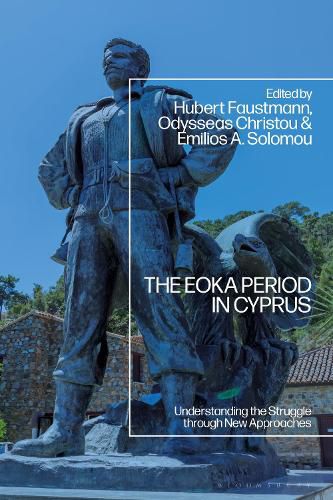Readings Newsletter
Become a Readings Member to make your shopping experience even easier.
Sign in or sign up for free!
You’re not far away from qualifying for FREE standard shipping within Australia
You’ve qualified for FREE standard shipping within Australia
The cart is loading…






In 1955, the Greek Cypriot organisation EOKA started an anti-colonial struggle against the British aiming at the unification of the island with Greece. This book sheds new light on the historical period of the struggle through the examination of various external and internal aspects of the conflict. It explores the role of international actors like the USA, the USSR, Germany, Turkey, Greece and the United Kingdom and grapples with the complex domestic dynamics from a variety of perspectives.
The EOKA Period in Cyprus analyses the role of armed organisations from both communities, as well as their respective responses to developments at various stages during the evolution of the conflict. By looking at processes such as radicalisation, passive resistance, collective punishment, intercommunal division and disarmament, the volume effectively considers the political, social and military nuances of the struggle, offering new insights from a multidisciplinary perspective in the process.
$9.00 standard shipping within Australia
FREE standard shipping within Australia for orders over $100.00
Express & International shipping calculated at checkout
Stock availability can be subject to change without notice. We recommend calling the shop or contacting our online team to check availability of low stock items. Please see our Shopping Online page for more details.
In 1955, the Greek Cypriot organisation EOKA started an anti-colonial struggle against the British aiming at the unification of the island with Greece. This book sheds new light on the historical period of the struggle through the examination of various external and internal aspects of the conflict. It explores the role of international actors like the USA, the USSR, Germany, Turkey, Greece and the United Kingdom and grapples with the complex domestic dynamics from a variety of perspectives.
The EOKA Period in Cyprus analyses the role of armed organisations from both communities, as well as their respective responses to developments at various stages during the evolution of the conflict. By looking at processes such as radicalisation, passive resistance, collective punishment, intercommunal division and disarmament, the volume effectively considers the political, social and military nuances of the struggle, offering new insights from a multidisciplinary perspective in the process.